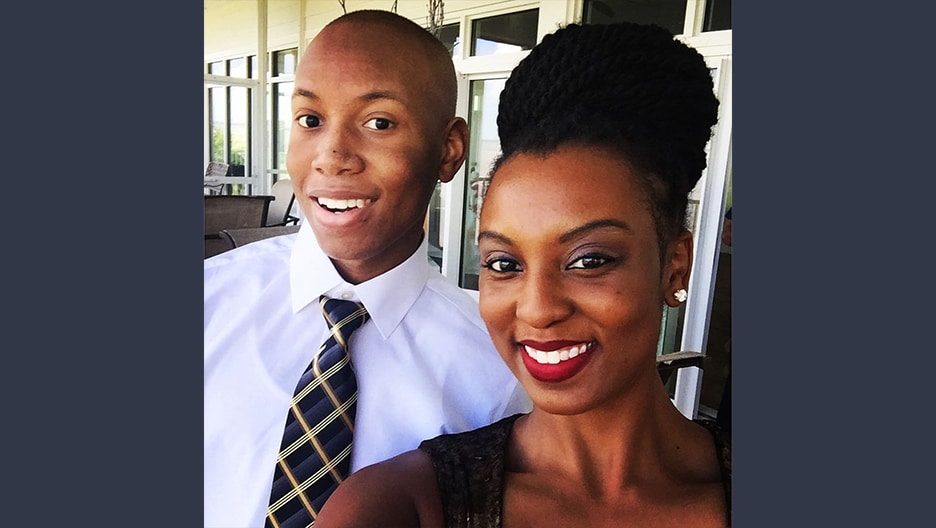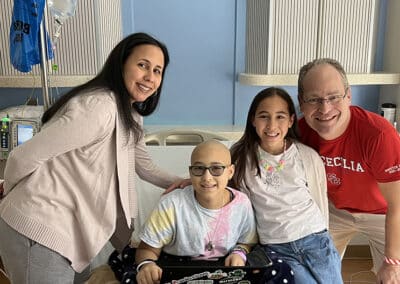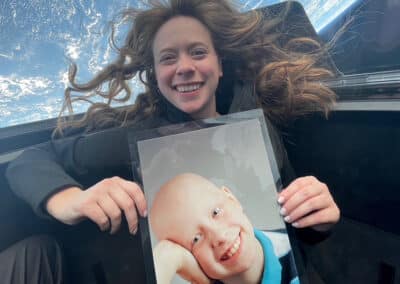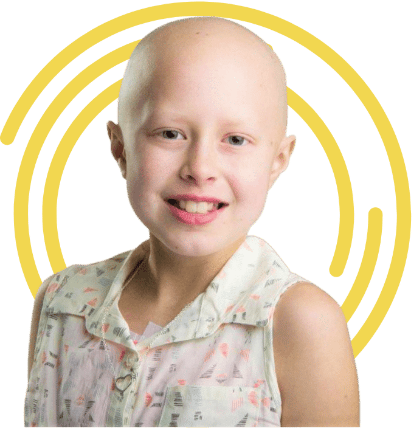Since middle school, Jasmine Smith, MD, knew she wanted to be a doctor — an obstetrician, to be exact.
“My whole plan all along was to deliver babies,” she says. “That’s the reason I decided to go to medical school.”
Jasmine’s plan changed during her sophomore year in college when she attended Army Basic Training in Missouri. When her family picked her up at the end of training, she learned the devastating news: Two months prior, her 14-year-old brother, Lewis, had been diagnosed with osteosarcoma. She was in shock.
“I knew, of course, what cancer was, but I never imagined my brother would get cancer. I always thought of it as something that happened to older people,” Jasmine says. “I remember the whole ride back to Virginia just trying to figure out what that meant. It was confusing because he looked fine. All I could do was try my best not to cry.”
